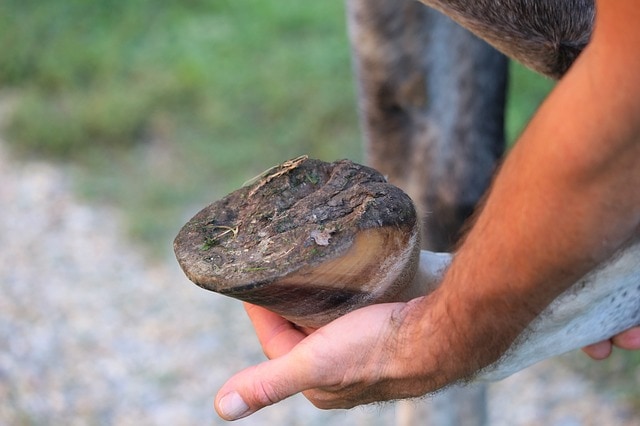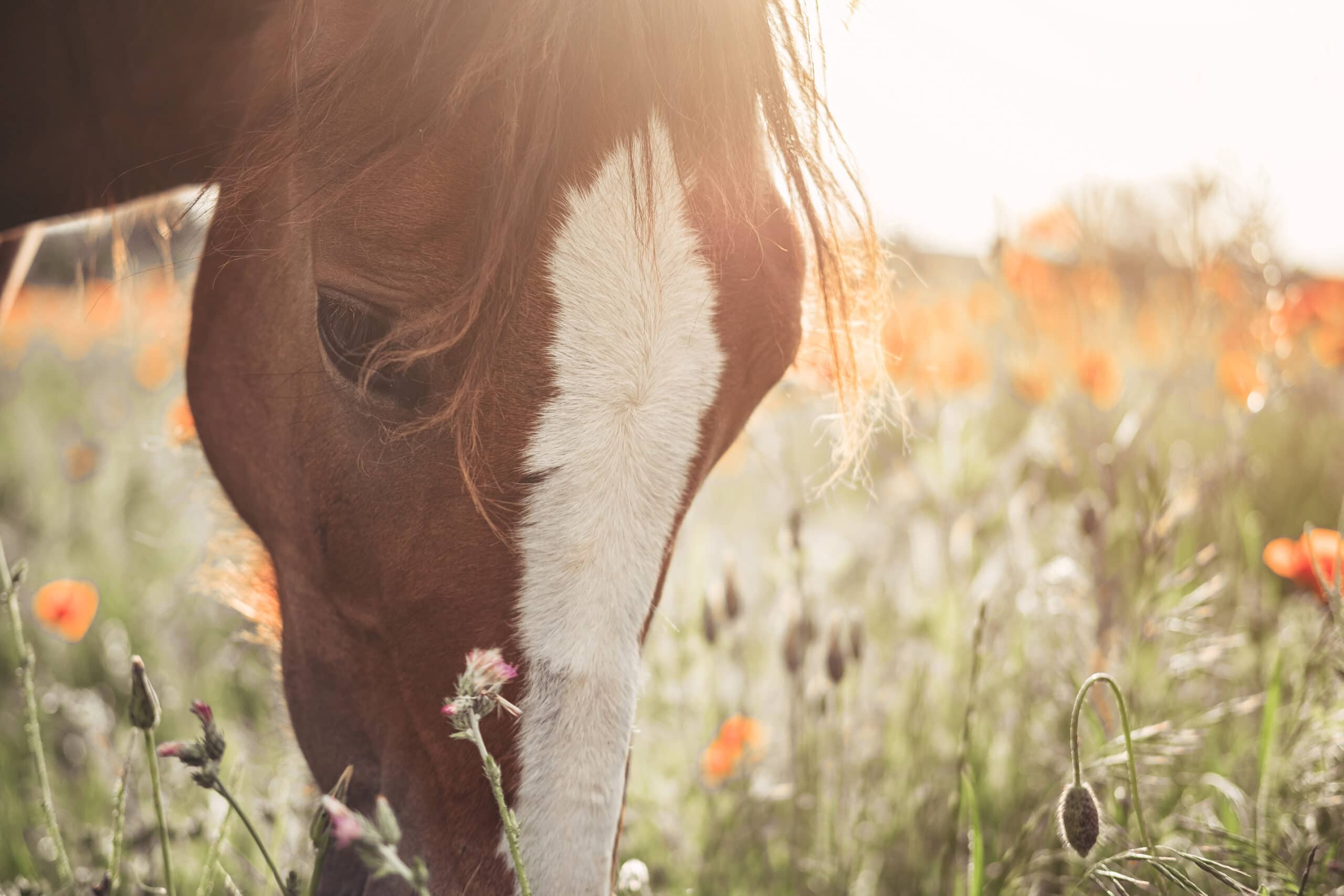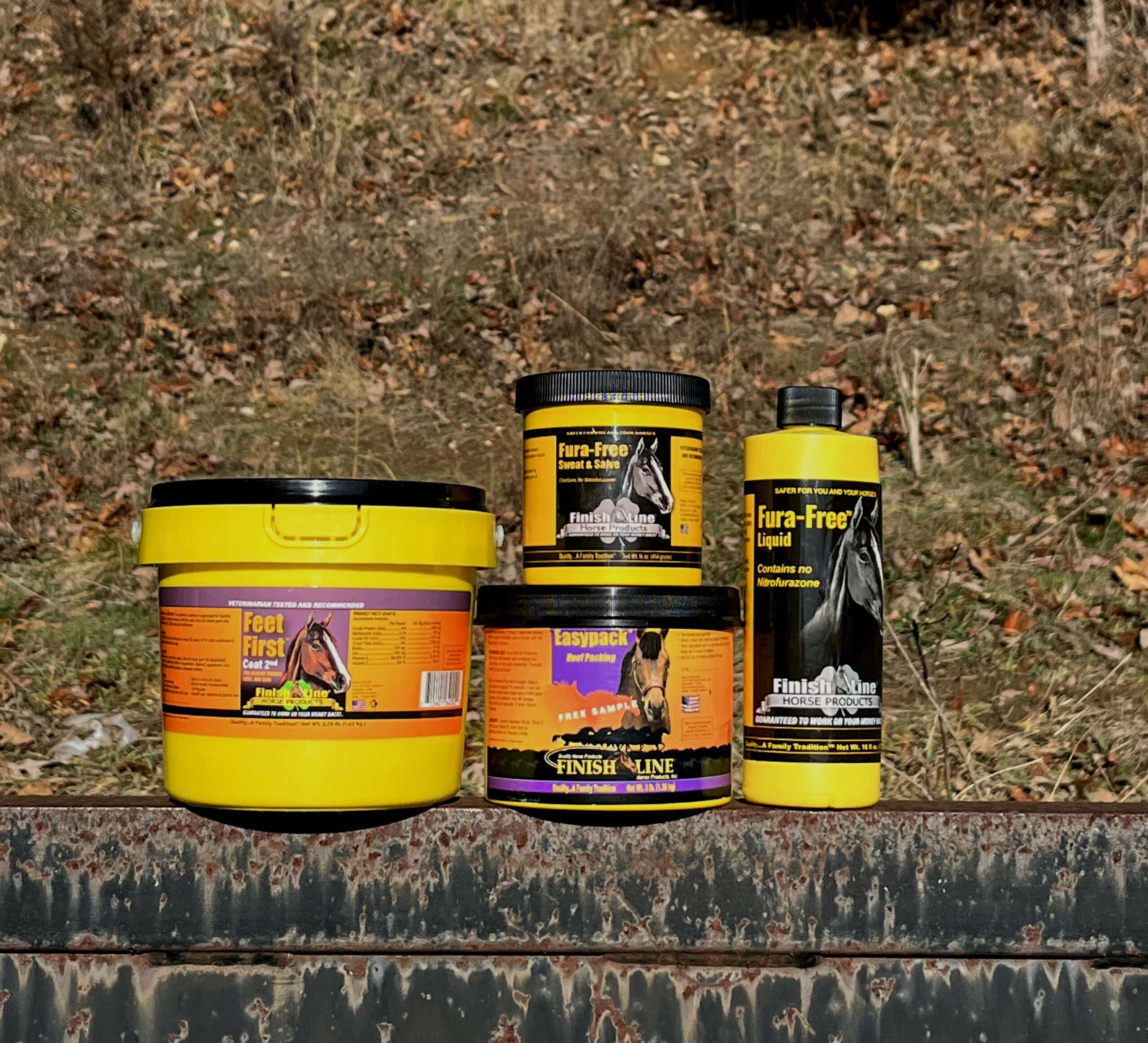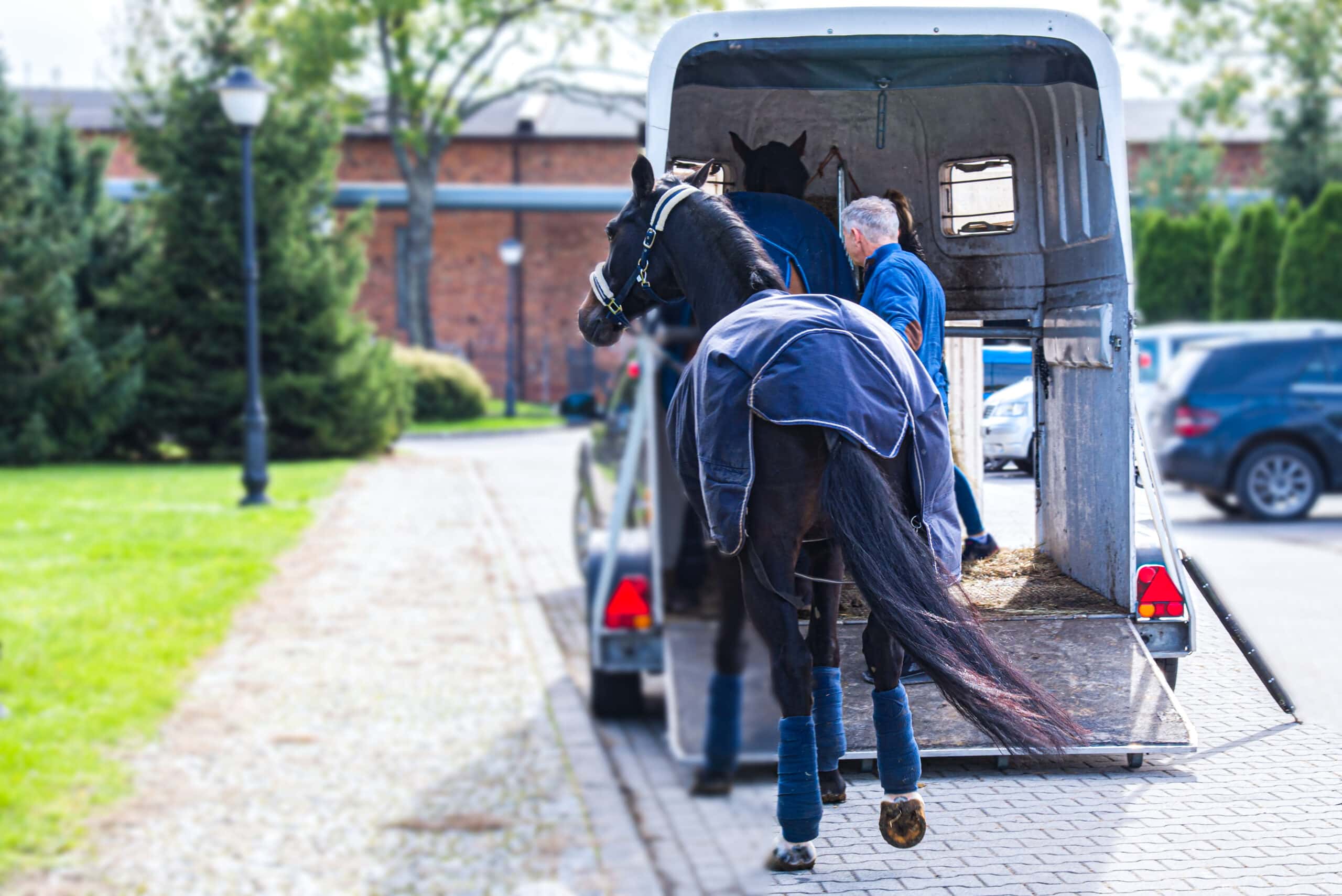No hoof, no horse. Everyone has heard this cautionary statement, yet it is still all too easy to become complacent when it comes to keeping your horse’s hooves healthy. Without the right environment and diet, your horse can develop issues like soft hooves which, if left untreated, can become cracked and infected with bacteria.
“A horse’s hooves are capable of expelling and absorbing moisture.”
How horses develop soft hooves
Most people wouldn’t expect a horse’s hooves to sweat but, as Equine Wellness Magazine points out, that is exactly what they do. Moisture from the circulatory system flows outward through the hoof, allowing it to remain strong and sturdy as it strikes the ground. However, this also means your horse’s hooves are capable of absorbing moisture, not just expelling it. If your horse stands in a wet environment for too long, its hooves will soak up the water and grow soft. A little moisture is not a big deal, but too much can cause the hooves to break down. The hoof becomes too flexible and is less able to absorb shock over time. Soft hooves are also more at risk of chipping and cracking, providing a great place for fungi and bacteria from the environment to sneak in, causing thrush.
Sometimes, a bit of softening is a natural response to your horse’s surroundings. For example, one study mentioned by Equine Wellness Magazine found a group of wild horses had slightly softer, duller hooves in the winter than in the summer. Yet soles that are too soft are a common problem year-round in the horse community, indicating that this issue is not always determined by weather.
To gain a greater understanding of soft hooves, Melinda Duer, a senior lecturer at the University of Cambridge, studied the exact effect of moisture on a horse’s hooves by taking a sample, grinding it into a fine powder and examining it under a microscope. According to TheHorse.com, she noticed that when water entered the hoof, the bonds between the keratin molecules within weakened. These bonds stretched and swelled, making the hoof less rigid as a result.
Environment, diet and genetics
Horses that live in wet, humid areas are more likely develop the condition than those living in dry, arid places. Equines that stand in the mud or on damp bedding for hours at a time are also at risk, as are those that are bathed frequently. On the other hand, some horses are simply genetically predisposed to soft hooves.
A diet lacking in the right nutritional elements can also contribute to soft hooves, a separate TheHorse.com article noted. This may result from supplying low-quality feed or mismanaging the amount the horse needs.
“Lots of horses today are fat, so people back off on feeds, then the horse doesn’t get proper levels of vitamins and minerals in his diet,” Ilka Wagner, a doctor of veterinary medicine at Equine Veterinary Services, told TheHorse.com
“Genetics plays a large factor in whether your horse will develop soft soles.”
This doesn’t mean every horse that doesn’t eat properly or lives in a rainy climate develops soft soles. Genetics plays a large factor, as well. In fact, your horse’s genes might be the biggest contributor to how its hooves deal with excess moisture.
Equine supplements with fatty acids and amino acids can support your horse’s hoof health and function. In addition, if your horse is prone to soft hooves, use wood over straw for bedding. Keep the stable dry and clean, and brush your horse instead of bathing it when you can.
It’s okay for your horse’s hooves to get a little wet from time to time, as they’re designed to withstand a little moisture. Just keep it from standing in water or mud for prolonged periods of time and make sure its diet is full of nutrients to support hoof health.
Finish Line’s Feet First, Coat Second and the all-in-one supplement, Total Control, contain a blend of fatty acids, biotin, vitamins A and E, methionine and zinc to support healthy hooves.









